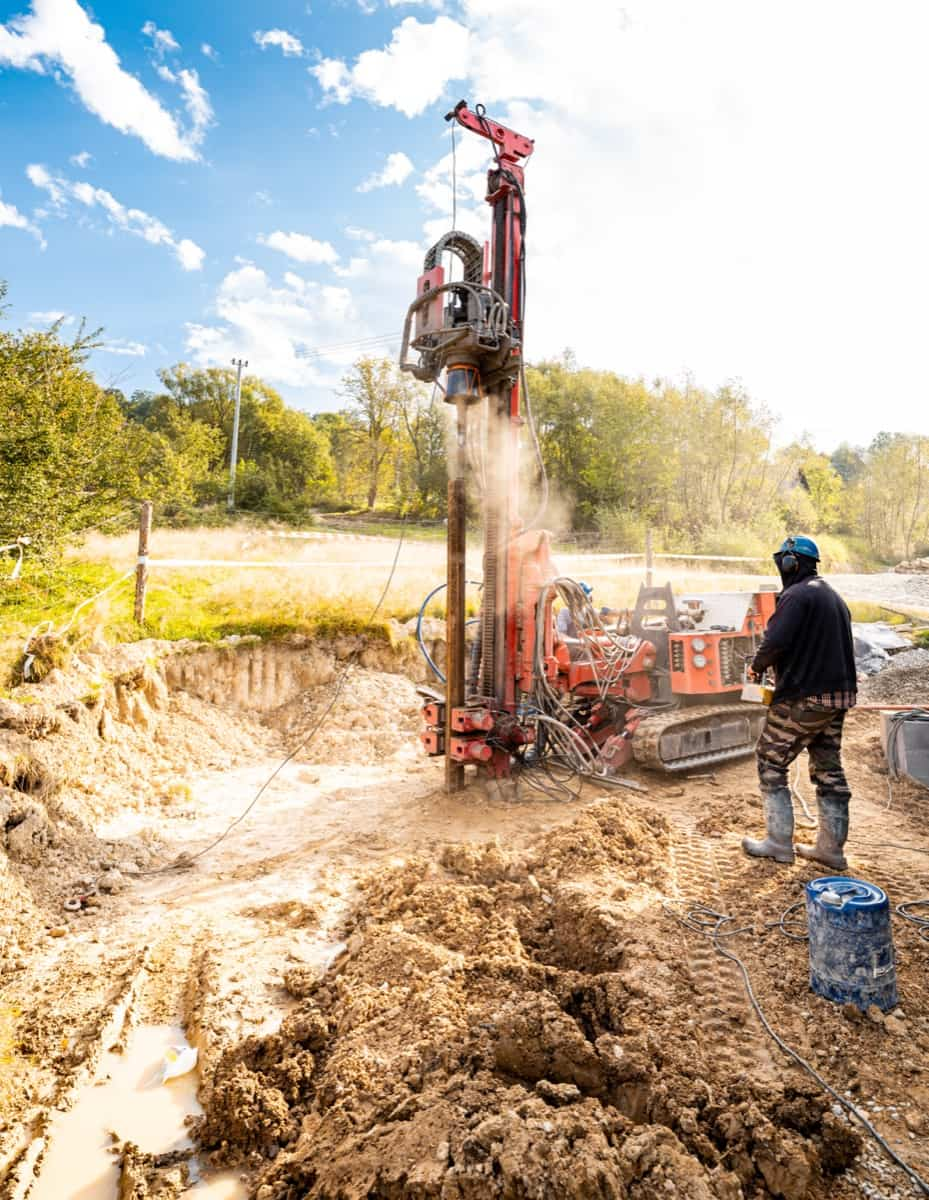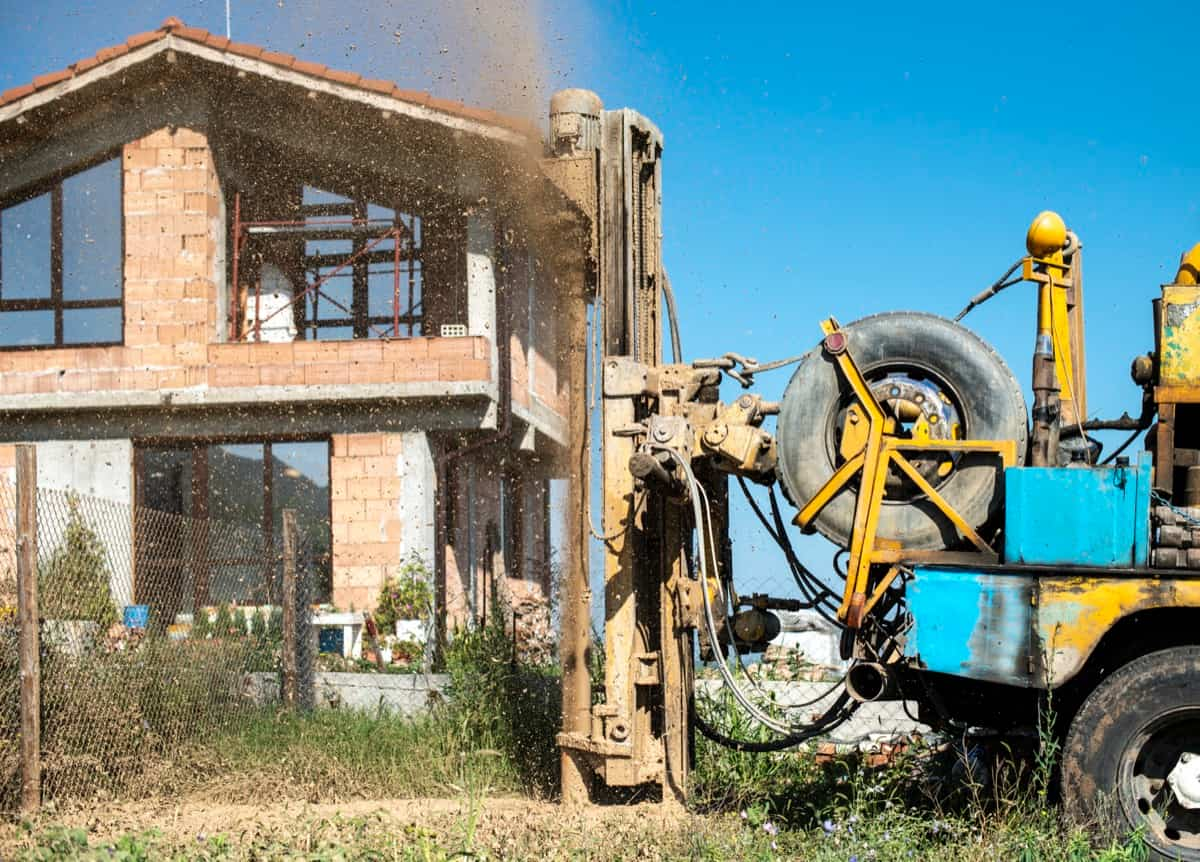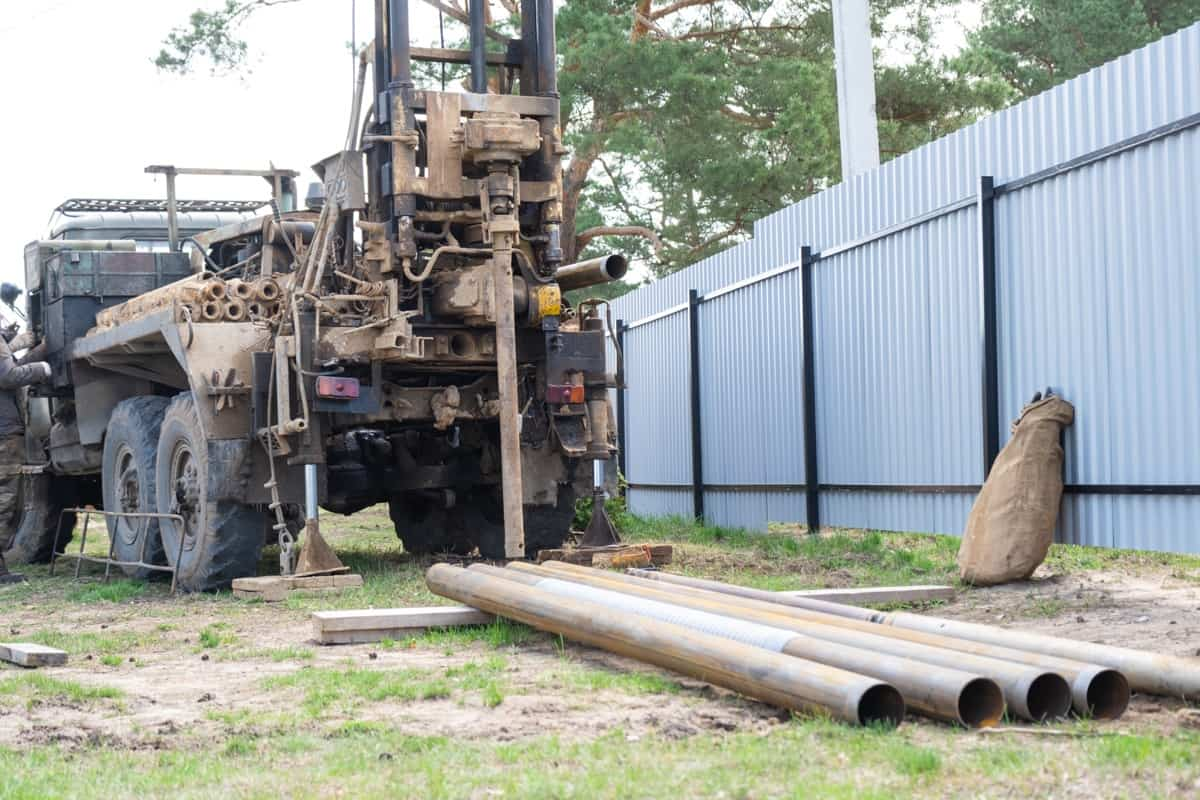Making money with a borewell machine is an exciting venture that combines practical engineering skills with a keen understanding of the water needs in your community. Borewells are deep, narrow wells drilled into the ground to access groundwater, making them essential for areas that rely on this water source for their daily needs.

With rising water supply demand in urban and rural areas, the borewell business has grown into a profitable enterprise. Here we learn the process of starting a borewell business, helping you understand the costs involved, expected profits, and calculation methods for different dimensions of borewells.
How to Make Money With Borewell Machine
Understanding the Borewell Business
Before diving into the actual operation of the borewell machine, you must understand the borewell business’s essentials. Borewells are typically measured in inches, and the size will depend on the volume of water required. Generally, the borewell’s diameter can range from 4 to 6 inches, but it can go up to 12 inches for larger applications. These different inches represent varying capacities, which, in turn, translate to different prices.
Moreover, the depth of a borewell is another crucial factor affecting the cost. A borewell can go as deep as 1,500 feet, but the typical depth for residential use is between 150 and 200 feet. Commercial applications, like agriculture or industrial usage, may require deeper borewells. Drilling costs are influenced by several factors including the depth and diameter of the borehole, as well as the geographical locale and the nature of the soil or rock being penetrated.
Borewell Cost and Profit Calculation
Setting up a borewell business requires a substantial initial investment. The primary expense is the borewell machine, with costs ranging from $20,000 to $50,000, contingent on size, model, and functionality. Additional costs involve transportation, maintenance, and labor, making the total setup cost significantly high.
In case you missed it: How to Make Money With a Tractor: A Step-by-Step Guide

As previously discussed, the borewell cost for the consumer will vary based on the drilling depth and diameter. For instance, if we take an average drilling cost of $15 per foot for a 6-inch borewell, a 200-foot borewell would cost $3,000. If you charge an additional 20% for transportation, labor, and other overheads, the total borewell cost for the consumer will be approximately $3,600.
You get your gross profit when you subtract your operational costs from the total charges billed to the customer. The above example’s operational cost (excluding the machine cost) is $500; your gross profit will be $3,100. However, it’s essential to note that your net profit will only be realized after recovering the initial machine cost. With an estimated gross profit of $3,100 per borewell, the cost of your equipment can be recouped after approximately 15 to 20 borewells, at which point net profit begins.
Operational Factors to Consider
Once you understand the cost dynamics and potential profits, you need to get familiar with the borewell machine’s actual operation. It would help if you had an experienced drilling crew who knows how to handle different soil types and operate the machine efficiently. The soil type, hardness, and presence of rock layers will affect the drilling speed and, consequently, the borewell cost.
Moreover, the crew must be trained in safety procedures to prevent accidents during drilling. Accidents can lead to additional costs due to damages and delays. Proper maintenance of the borewell machine is also crucial to avoid breakdowns and ensure a long operational life.
Legal and Environmental Considerations
Before starting the borewell business, you must know the legal and environmental implications. Groundwater is a shared resource, and over-extraction can lead to severe environmental problems, including water scarcity and land subsidence. As a result, many countries have laws regulating borewell drilling.
Before commencing your borewell business, understand these regulations and obtain the necessary permissions. In many places, a permit is required to drill a borewell, and you might be obligated to register the borewell after drilling. Non-compliance with these rules may lead to monetary penalties and legal issues.
Maintaining Equipment and Supply Chain Management
A critical step in the borewell business process is maintaining your drilling equipment and managing the supply chain efficiently. Since a significant portion of the business operation revolves around physical tasks, keeping your borewell machine and other equipment in top condition is crucial. Regular maintenance checks, timely repairs, and efficient machine use can significantly increase lifespan, reduce downtime, and enhance profitability.
Also, managing your supply chain, including sourcing quality drill bits and other consumables, is pivotal. Effective supply chain management ensures you have the necessary equipment and supplies to complete jobs promptly and maintain customer satisfaction. Strong relationships with suppliers can lead to cost savings, more reliable delivery schedules, and access to higher-quality materials, all of which contribute to the success of your borewell business.
Marketing Your Borewell Business
Once you have set up your borewell business and understood the legal and environmental implications, the next step is marketing your services. Conventional advertising methods like newspaper promotions and brochures have proven efficacy in targeting local communities.
In case you missed it: How to Make Money with a Computer/Laptop at Home

However, digital marketing, including social media and online classifieds, can help you reach a larger audience. Word-of-mouth referrals from satisfied customers can also boost your business. Therefore, ensuring customer satisfaction by providing quality services at competitive prices can significantly contribute to your borewell business’s success.
Conclusion
Starting a borewell business can be lucrative, given the high demand for groundwater in rural and urban areas. However, it requires significant upfront investment, an understanding of operational and legal aspects, and effective marketing strategies. The borewell cost for consumers and the profits you can make from the business depend on several factors, such as the depth and diameter of the borewell, type of soil, location, and overhead costs.
You can ensure a profitable borewell business by carefully considering these factors and providing excellent services. While the borewell business requires substantial initial investment and careful planning, it can yield significant returns in the long run. With a keen understanding of the market, rigorous cost calculations, and a focus on customer satisfaction, you can carve a niche in this field. This guide should be a good starting point for your borewell business journey.
- Handicraft Making at Home: A Small Profitable Business Idea
- Pet-Tech Startups: Innovations for Animal Lovers
- Tech Repair Services: Meeting the Demand for Gadget Maintenance
- Maximizing Rewards: Smart Credit Card Habits for Cashback and Points
- Ultimate Guide to Making Money from Goat Milk Business
- How to Start an Agricultural Value Added Product Business
- Value-Added Business Ideas for Greenhouse: The Best Ways to Make Profits with Greenhouse Farming
- How to Make Profits with Organic Country Chicken: Best Strategies for Beginners
- 10 Value-added Business Ideas for Millets: Low-investment and Highly Profitable